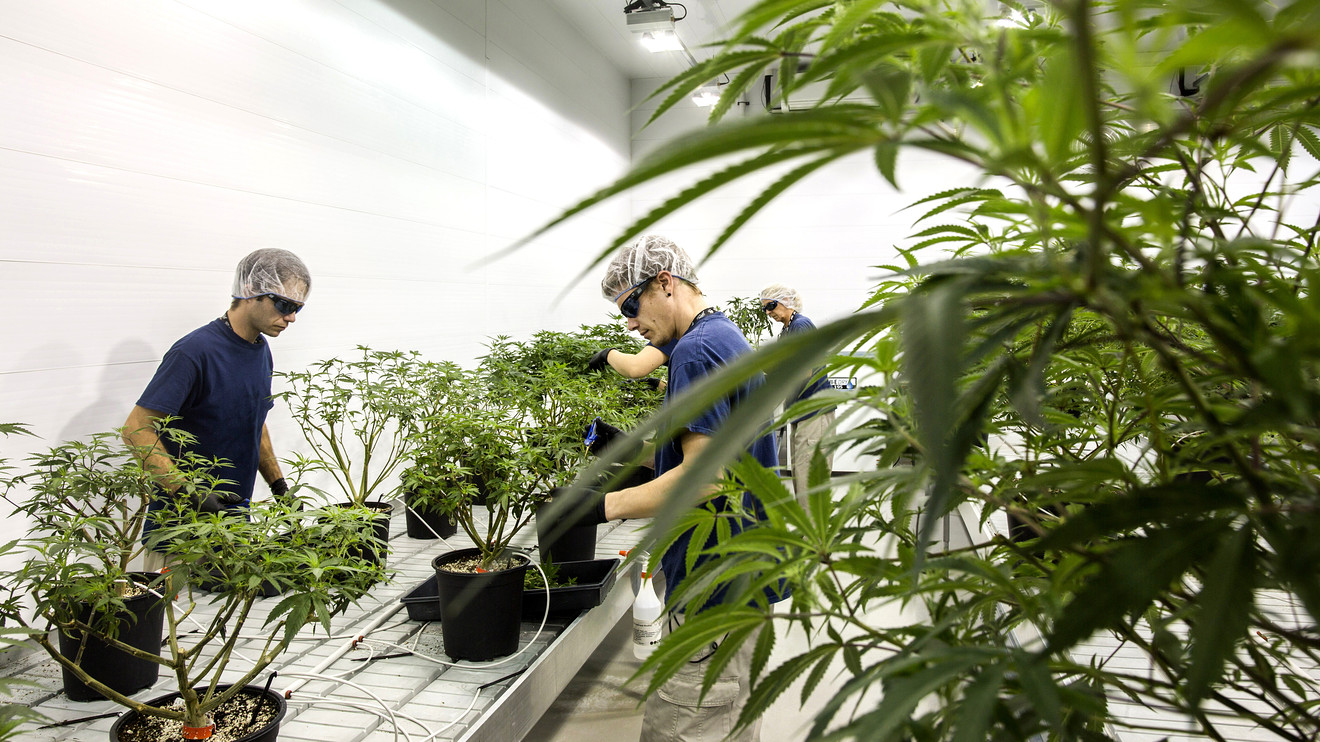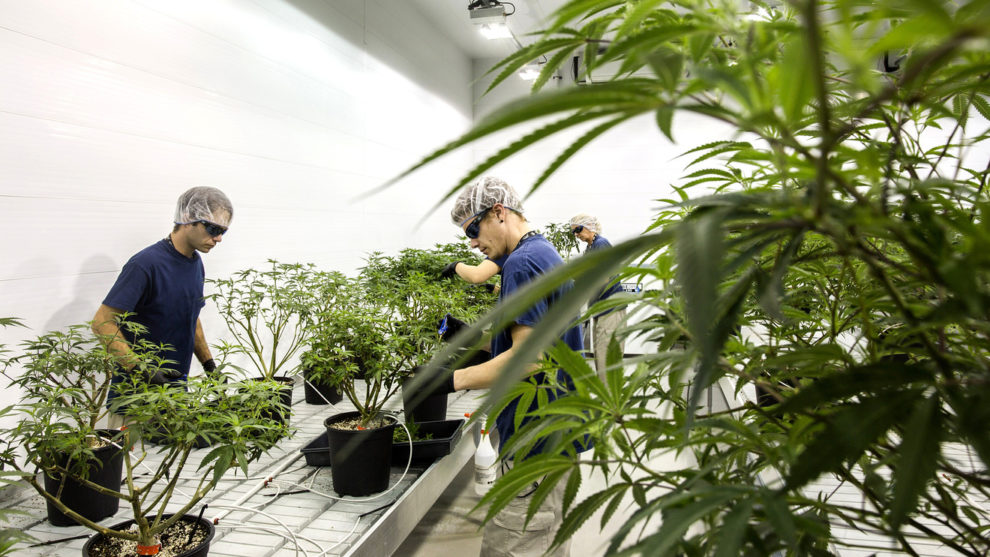
Still the world’s largest weed company by market value, Canopy Growth Corp. and its bet on weed beverages have not paid off exactly the way investors were promised.
In January, Canopy Growth CGC, -0.98% WEED, -1.02% executives said that their vaunted line of beverage products had been delayed because the company has yet to finish scaling production. The company said it doesn’t expect the delay to have a material impact on fiscal 2020 revenue, but promised an update after issuing fiscal third-quarter earnings, which are scheduled for release before the market opens Friday. A conference call is scheduled for 10 a.m. Eastern time.
Canopy’s line of weed drinks was originally supposed to hit retail in “early January,” according to a company announcement in December, with another batch of drinkable products planned to follow in February. The delay, along with Canopy’s incremental pullback of its guidance from C$1 billion ($750 million) in revenue all the way to no guidance at all, has caused investor trust to be shaken, according to Jefferies analyst Owen Bennett.
Drinks were a critical component of the company’s plan for success: it has taken a $4 billion investment from beverage giant Constellation Brands Inc. STZ, +0.06% and executives have laid out a bold, if unproven, vision of how to turn Canopy into a weed drinks titan. At the time of the investment, Constellation took control of the board, effectively turning Canopy Growth into one of Constellation’s vassal companies — a development made clear when the board ousted former co-CEO Bruce Linton.
One of the attractions to investors was that Corona-maker Constellation’s understanding of the beverage market would be a massive asset to Canopy, a company that has no experience producing a beverage — including those with a rapid onset and offset effect — of any sort at scale.
See also: Pot companies have just months to live on average, study finds
Canopy’s drinks were sold as its flagship products for the second batch of legal weed that the Canadian government allowed to hit the shelves in Dec. of last year. So-called cannabis 2.0 products include vaporizers, edible products such as chocolates and cannabis drinks, among other things.
In cannabis markets in the U.S. where “cannabis 2.0” products have been available for a year or more, drinks account for 1% or less of the market in states such as California, Washington and Colorado, according to data from BDS Analytics published in a research note by Canaccord Genuity analyst Bobby Burleson.
Beyond an update on pot drinks, investors should expect Canopy executives — who no longer include former co-Chief Executives Linton and Mark Zekulin — to offer additional information about where the company’s “cannabis 2.0” products stand and what to expect from the rest of the second-generation products.
What to expect
Earnings: According to the FactSet consensus, analysts model a fiscal third-quarter loss of C$0.52 cents a share versus a loss of C$0.38 a year ago. Losses are expected to narrow sequentially from the fiscal second quarter of C$1.08.
Revenue: Wall Street analysts model Canopy Growth fiscal third-quarter sales of C$105.3 million, compared with revenue of C$83 million in the year-ago quarter. Canopy’s incremental revenue will rise from C$76.6 million in the fiscal second quarter.
Stock movement: U.S.-traded shares of Canopy Growth have fallen 1.9% in the past three months, with the S&P 500 index SPX, +0.45% notching a gain of 8.6%. In the past three months, the ETFMG Alternative Harvest ETF MJ, -0.85%, which tracks a basket of pot stocks, among other names, fell 19.4% as the Cannabis ETF THCX, -0.88% fell 26%.
What analysts are saying
In a January note to clients, Jefferies analyst Bennett wrote that Canopy Growth demonstrated a lack of second-generation cannabis offerings that were listed in the Ontario Cannabis Store, the provincial government’s online weed retail store. Bennett wrote that with the $4 billion backing of Constellation, his team expected evidence of a stronger rollout of the new second-generation products. Bennett has the equivalent of a sell rating on the name with a target price of $16.
MKM Partners analyst Bill Kirk wrote in a Monday note to clients that his team doesn’t see any reason to expect a contribution to sales from the company’s second-generation products. Kirk has a C$23 price target with the equivalent of a hold rating on the stock.
Read: Cannabis experts are hoping 2020 will be the year that New York finally legalizes weed
PI Financial analyst Jason Zandberg wrote in a note to clients Tuesday that his team is watching for signs of how new management is handling turning the company around. Zandberg has a C$25 target price on the name with a buy rating. Zandberg is referring to the appointment of former Constellation executive David Klein as full-time CEO in December, and adding Constellation director Judy Schmeling as chair of the board and Jim Sabia — Constellation’s current Chief Marketing Officer — as a member of the board.
“We believe the shift of management was motivated by Constellation’s desire to reduce Canopy’s cost structure, especially with the currently challenging landscape in Canada.”
Because of the leadership changes, Kirk wrote that he would expect that any re-assessment of the company’s cost structures to lead to layoffs, facility closures and potential goodwill impairments.
Canopy also has an established retail presence in Canada, operating 27 locations under the Tokyo Smoke banner. Zandberg wrote that his team was watching for signs of whether Canopy was using that network to sell its products. The analyst said it’s unlikely Canopy will take charges for product returns or price reductions in the fiscal third quarter but it has become increasingly likely that it could experience goodwill impairment charges.
Of the 23 sell-side analysts that cover Aurora, 10 have the equivalent of a buy rating, 12 rate the stock a hold and one has the equivalent of a sell rating on the name. The average price target is $21.32, which represents a 7% gain from Monday’s close of $19.91.
div > iframe { width: 100% !important; min-width: 300px; max-width: 800px; } ]]>











Add Comment